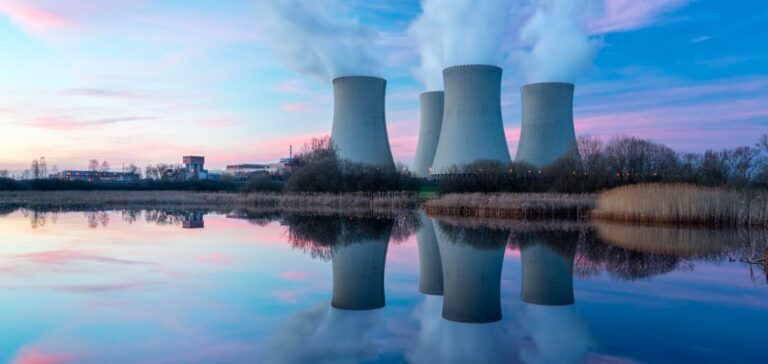Which energy(s) will France of tomorrow use? The French are invited to debate in the coming weeks on the construction of new nuclear reactors and more broadly on the country’s energy choices.
Even if the mobilization of the public is the first unknown, so much the government can give the impression to have decided.
Starting Thursday, the National Commission for Public Debate (CNDP) is launching a debate on the construction of six new EPR nuclear reactors, a legal obligation for EDF, while another general governmental consultation on energy began on October 20.
Because France is at the dawn of societal choices that will commit it for decades: in order to fight global warming and achieve carbon neutrality in 2050, the country must move away from fossil fuels, using more electricity.
How to do it? While in France, about 70% of the electricity comes from nuclear power, the government wants to launch a program of six new generation EPR reactors, with an option for eight others, while developing renewable energies (especially solar and wind power).
The consultation, which began on October 20 and is scheduled to last until December 31, was promised by Emmanuel Macron in February when he announced the revival of nuclear power in Belfort.
It will take place via an online participatory platform (concertation-energie.gouv.fr) and several face-to-face regional meetings, as well as a “youth forum” bringing together 200 young people in mid-January.
As of Monday, the site had already collected more than 4,000 contributions.
Three questions are on the table: how to adapt our consumption? How can we meet our energy needs while breaking our dependence on fossil fuels? How do we plan and finance our energy transition?
This consultation will be monitored by four guarantors from the Commission nationale du débat public (CNDP), an independent administrative authority that has advised the government on its organization.
– “The game is open” –
The public debate on the EPR will be held until February 27, in Normandy – the construction of the first two EPRs is planned in Penly (Seine-Maritime) – but also in Lyon, Lille, Tours…
Ten themes will mark out the meetings, the first of which will be in duplex in Dieppe and Paris: “impacts on the territory”, “lessons from the first EPR”, “climatic and geopolitical uncertainties”, but also “do we need a new nuclear program?
The discussions will be based on several scenarios for 2050 produced by the high voltage network operator RTE and by Ademe.
All of them include an increase in renewable energies (solar, wind…), with a variable share of nuclear energy, starting at zero and accompanied by strong sobriety measures.
These debates are taking place at a time when Parliament must vote on France’s energy roadmap by 2024 at the latest (setting the share of each energy source). The synthesis of the two debates will be included in the parliamentary proceedings.
Without waiting, the government announced in September two acceleration bills, one for renewables and the other for nuclear.
Under these conditions, how can we mobilize the public? Will the conclusions of these debates eventually change these directions?
For Jean-Claude Delalonde, president of Anccli, the federation of local information commissions set up around each power plant in France, it will be necessary to “listen to questions”.
“The public debate is going to be launched when the government has already decided to build six reactors!” he said.
At the Ministry of Energy Transition, they say that “the main lines have been outlined by President Emmanuel Macron (…) but there is the question of how. This is what is at the heart of this consultation: to define more precisely the way we will detail this policy”.
Chantal Jouanno, president of the CNDP, insists: “the game is open”, with a very composite Parliament. For her, the issue of publicity around these consultations will be crucial.
At the ministry, a communication campaign is announced: “energy has rarely been so much at the heart of the debates, so we think and we hope that there will be an appetite for these debates, in any case we will do everything to”.





















